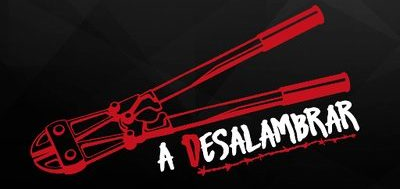 |
Basque Info
Basque Info podcast: (audio here)
Basque Info bulletin:
In this issue:
- Trial of Arnaldo Otegi.
- Mandate established for mediators’ International Contact Group.
- Wide support for prisoners’ repatriation.
- Basque youth reply to repression.
Trial of Arnaldo Otegi
Last week a trial against Basque pro-independence leaders Arnaldo Otegi, Joseba Permach and Joseba Alvarez took place in the Spanish Special Court in Madrid. They were facing charges of allegedly “glorifying terrorism” during a political rally attended by 15,000 people at the Anoeta Velodrome in November 2004.
Arnaldo Otegi had presented a peace proposal there which would afterterwards lead to a negotiation process between ETA and the Spanish Government on the one hand and Batasuna and the Spanish Labour Party on the other. That proposal, accepted by the majority of political parties, is still the basis for any realistic negotiation process.
During the trial the judges denied the defence the right to ask many questions of the witnesses, the President of the Basque branch of the Spanish Labour Party’s and the ETA victim journalist Gorka Landaburu.
Apparently the Spanish authorities felt uncomfortable about what the witnesses might say at this particular time when the Spanish right wing are pressing the Government not to negotiate with the Basque pro-independence movement.
When Arnaldo Otegi was given the chance to address the Tribunal at the end of the trial he was also continuously interrupted by the judges. He was finally able to denounce it as a political trial and to restate his position in favour of a democratic resolution to the conflict and his commitment to political and peaceful means. He also sent a message of solidarity to the Saharawi people who are being massacred currently by the Maroccan Government.
The accused face a sentence of 18 months in jail.
Mandate established for International Contact Group
Last week international facilitator Brian Currin presented a document outlining the mandate and role of the International Contact Group (ICG). This group has been recently formed by five of the signatories of the Brussels Declaration launched in March by 50 international figures with the aim of assisting a negotiation process in the Basque Country. The identities of the five have not been made public yet.
Brian Currin announced last week that he had been consulting with the major stakeholders in the Basque Country to seek a mandate for the ICG. From those constructive meetings the broad mandate for the group has been set as to expedite, facilitate and enable the achievement of political normalization in the Basque Country.
Political normalization is understood as an inclusive and transparent political process based on exclusively democratic means and the principles of respect for Basque society’s wishes.
As the Brussels Declaration requires, when ETA declares a unilateral, permanent and verified ceasefire the ICG will start its work. According to the mandate set, this group will then promote the Basque Pro-Independence Left’s legalisation, the adoption of a new policy towards prisoners and all-inclusive multi-party talks and negotiations to achieve an agreement to overcome the political conflict.
The Basque Pro-Independence Left welcomed the announcement and condemned the constant rumours and misleading information of the media about any future ETA decisions.
Wide support for prisoners’ repatriation
One hundred well-known professors, artists, sports people, writers, journalists and lawyers among others took part in a press conference last Saturday to present a petition entitled “Let’s take the step”.
In it they ask Basque society to mobilise against the “cruel prison policy” imposed by the Spanish and French governments on Basque political prisoners and their families. The creators of the petition say that they are simply asking for the implementation of the law of any democratic state. They demand the repatriation of all prisoners and an end to the dispersal policy, which scatters 750 prisoners across 85 jails, the release of seriously ill prisoners and those who have already completed their sentence, an end to harassment during visits and an end to the criminalisation of the prisoners’ solidarity campaign.
Those who signed the petition call upon Basque society to take the step, to come forward and mobilise to defend Basque prisoners’ rights as a way to also defend the rights of Basque citizens at this very crucial time for change in the Basque Country. For that they have organised a national demonstration in Bilbao on the 8th of next January.
Basque youth reply to repression
Following the most recent police operation on the 22nd of October against the Basque youth pro-independence movement, many protests have taken place over the past few weeks. The latest was held in Donostia/San Sebastian last Saturday with an attendance of 1,500 people from diverse political backgrounds.
In the morning a mass press conference was held by more than 50 pro-independence youth whose names are now on a black list drawn up by the police during the last police operation, where those arrested were tortured.
These youth could be detained at any time but despite their concern they came out publicly to denounce the sitution and to courageously proclaim their pro-independence work and to show that they won’t retreat.
